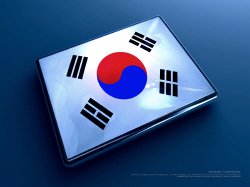The Symmetry Gestures
What is the gestures I'm going to talk? I'm not sure. It's a terminology issue again as always. In my English writing classes in Davis, California years ago, I was recommended to have my words filtered through a native proofreader. However, I'm just going to bring it on here as there's no scoring stuff in this blog! Instead, interesting observations and open arguments will be.
The gestures here describe My friend Kiho having lunch outside with his colleague Seyoung. She paid for the lunch, he paid for coffee. She spent a little more than Kiho. But it's OK. Both thought they're even. A month earlier, Kiho paid for lunch and that was it. She said thanks for the lunch so next time she would treat lunch. 2 weeks later she did it actually. They're so even.
Why didn't they just go dutch? Doing so might have been looking not so warm in Korean culture. As they are both Koreans and used to see the oldest in the group treats all, they let one of them swipe the credit card whoever the one is even there's no such elder one between Kiho and Seyoung.
The gestures also describe this Heewon and his father preparing his marriage. Last Sunday dinner was at a fancy Bulgogi restaurant with Heewon and his close friends. The wedding is in a month. He announced he's getting married soon and the friends congratulate. He distributed invitation cards to 6 and paid for all the dinners. It was 210,000 won total, 30,000 each. The 6 on the way home had an online conversation about how much they should give Heewon at the wedding for gift money. Since they ate slightly over his budget they expected, 50,000 won isn't going to be enough. It's the most common figure for wedding gift money not to mention it's Korean culture every guest at the entrance of the wedding stands in line, turns in a money envelope, watches the event, and eat complementary buffet costing the wedders 30,000 to 50,000 normally. That's how the 6 can't gift just 50,000 to risk Heewon to see minus. They agreed to raise it to 70,000 minimum. Closer friends could surely do more.
Cases can vary but one common sense seen above is the fund flow between Koreans doesn't prefer going dutch but it later seeks the symmetry by complementary funds in return. It tracks an analog route but today's giver would be tomorrow's receiver. What's this fuss for? Funds may come and go between people to find even, but there remains sticky bond in which people treat people. Going dutch makes me feel comfortable because I don't owe, but after that I would forget who I had lunch with. Otherwise, I might remember because I owe lunch. I have to recontact and remeet. Oh, the opposite has a stronger motive who needs to get lunch back from me. Social network seems more interesting when it's analog.

